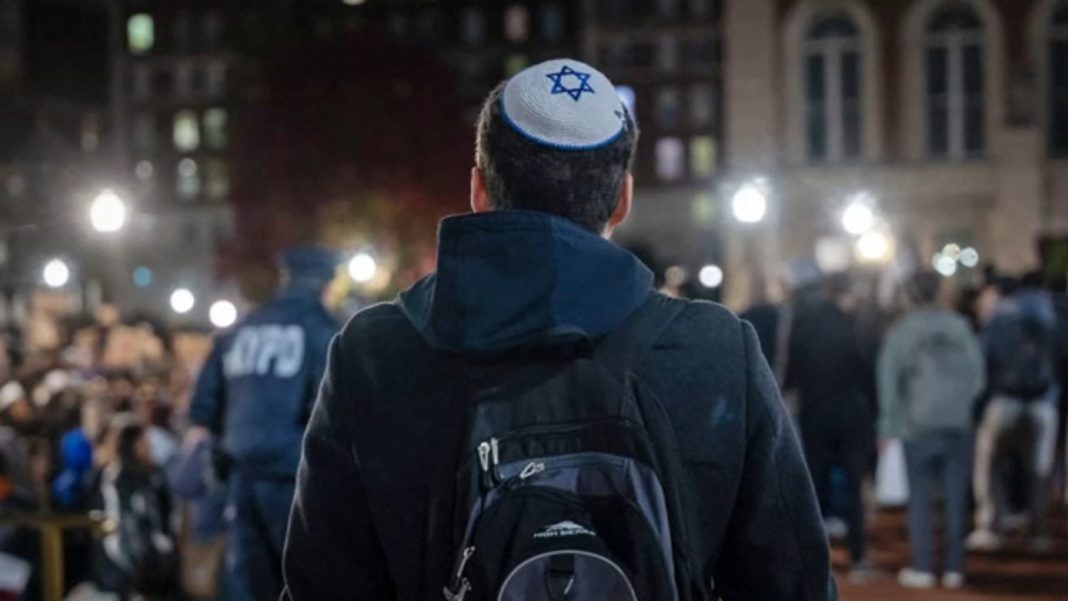The past year has witnessed a dramatic and alarming rise in antisemitic incidents across the United States, particularly in the wake of the October 7 terrorist attack by Hamas on Israel. A report by the Anti-Defamation League (ADL) highlights that antisemitic threats have tripled during this period, with over 10,000 incidents recorded from October 7, 2023, to September 2024. This surge marks a staggering increase from just 3,325 incidents the previous year, making it the highest number of antisemitic acts documented in a single year since the ADL began tracking such data in 1979.
Jonathan Greenblatt, the CEO of the ADL, remarked on the relentless nature of this crisis, stating, “Jewish Americans haven’t had a single moment of respite. Instead, we’ve faced a shocking number of antisemitic threats and experienced calls for more violence against Israelis and Jews everywhere.” Such sentiments underscore the precarious reality for Jewish communities, which have found themselves at the epicenter of escalating tensions.
The context of this escalation is rooted in the broader conflict in the Middle East, particularly the ongoing war between Israel and Hamas. As the violence continues, U.S. law enforcement agencies have heightened their vigilance, stepping up patrols around Jewish and Muslim institutions in light of potential threats. This proactive measure is particularly pertinent as the anniversary of the October 7 attack coincides with the Jewish High Holidays, a time traditionally marked by reflection and gathering.
The ADL’s report reveals that more than 150 physical assaults, over 1,840 acts of vandalism, and upwards of 8,000 incidents involving verbal or written harassment have contributed to this alarming trend. Notably, U.S. college campuses have become flashpoints for antisemitic incidents, with at least 1,200 recorded over the past year—a staggering 500% increase compared to the previous year. These campuses have witnessed a wave of protests advocating for Palestinian rights, which, while largely peaceful, have also been marred by instances of antisemitic intimidation and violence.
In April 2023, the Council on American-Islamic Relations reported receiving 8,061 complaints of anti-Muslim bias, the highest number in 28 years. This simultaneous rise in hate incidents against both Jewish and Muslim communities illustrates a troubling trend of escalating tensions fueled by geopolitical events. FBI Director Christopher Wray reinforced this concern, noting that the Jewish community is disproportionately targeted by extremist groups, despite making up only about 2.4% of the U.S. population. Wray emphasized, “It should be jarring to everyone that that same population accounts for something like 60% of all religious-based hate crimes.”
The connection between the domestic rise in hate crimes and international events is not merely coincidental. The ADL found that over 3,000 antisemitic incidents occurred during anti-Israel rallies, where expressions of support for terrorist organizations were often present. These rallies reflect a complex interplay of political expression and the potential for violence, highlighting how global conflicts can reverberate through local communities.
As the situation continues to evolve, advocates like Greenblatt urge vigilance and action. “If you see something, say something,” he implores, emphasizing the importance of community engagement in combating hate. The call for solidarity is paramount; it reflects a wider recognition that the fight against antisemitism is intertwined with the struggle against all forms of bigotry.
In conclusion, the rise in antisemitic incidents in the United States is not merely a statistic; it is a reflection of a deeper societal issue that requires collective action and awareness. As communities grapple with the implications of both local and global conflicts, fostering dialogue and reporting incidents of hate will be critical in restoring a sense of safety and unity. The urgency of this situation calls for an unwavering commitment to protecting the rights and dignity of all individuals, regardless of their background.

